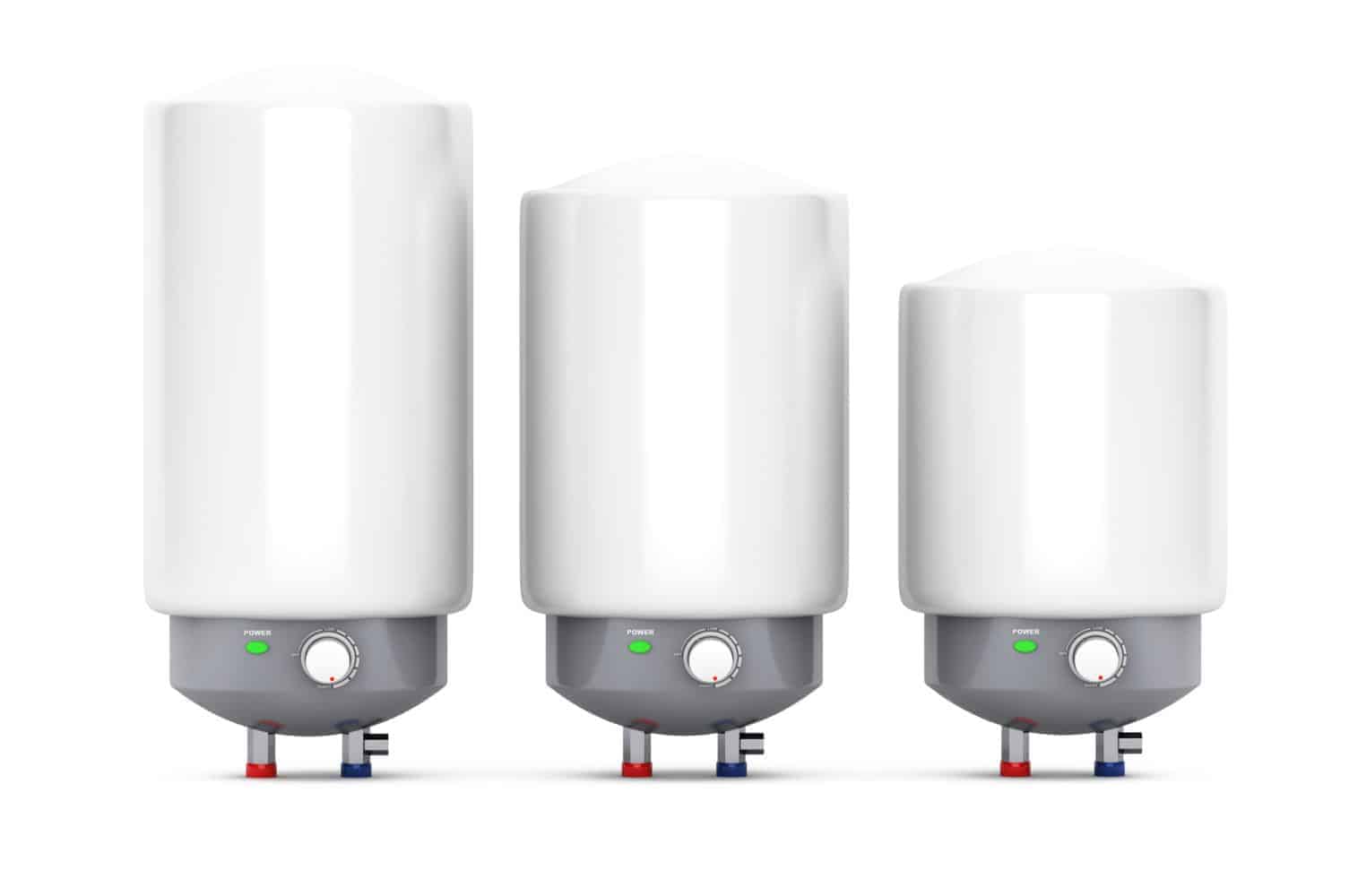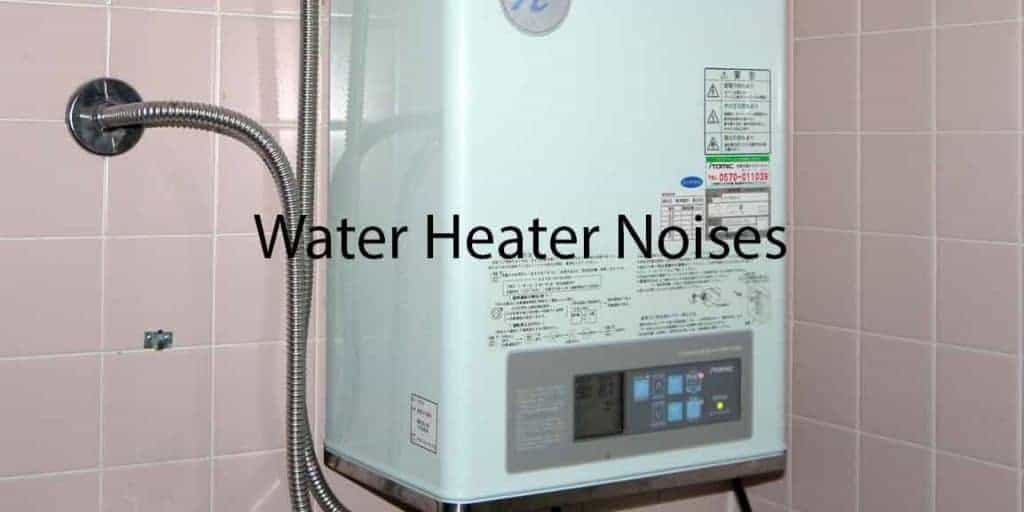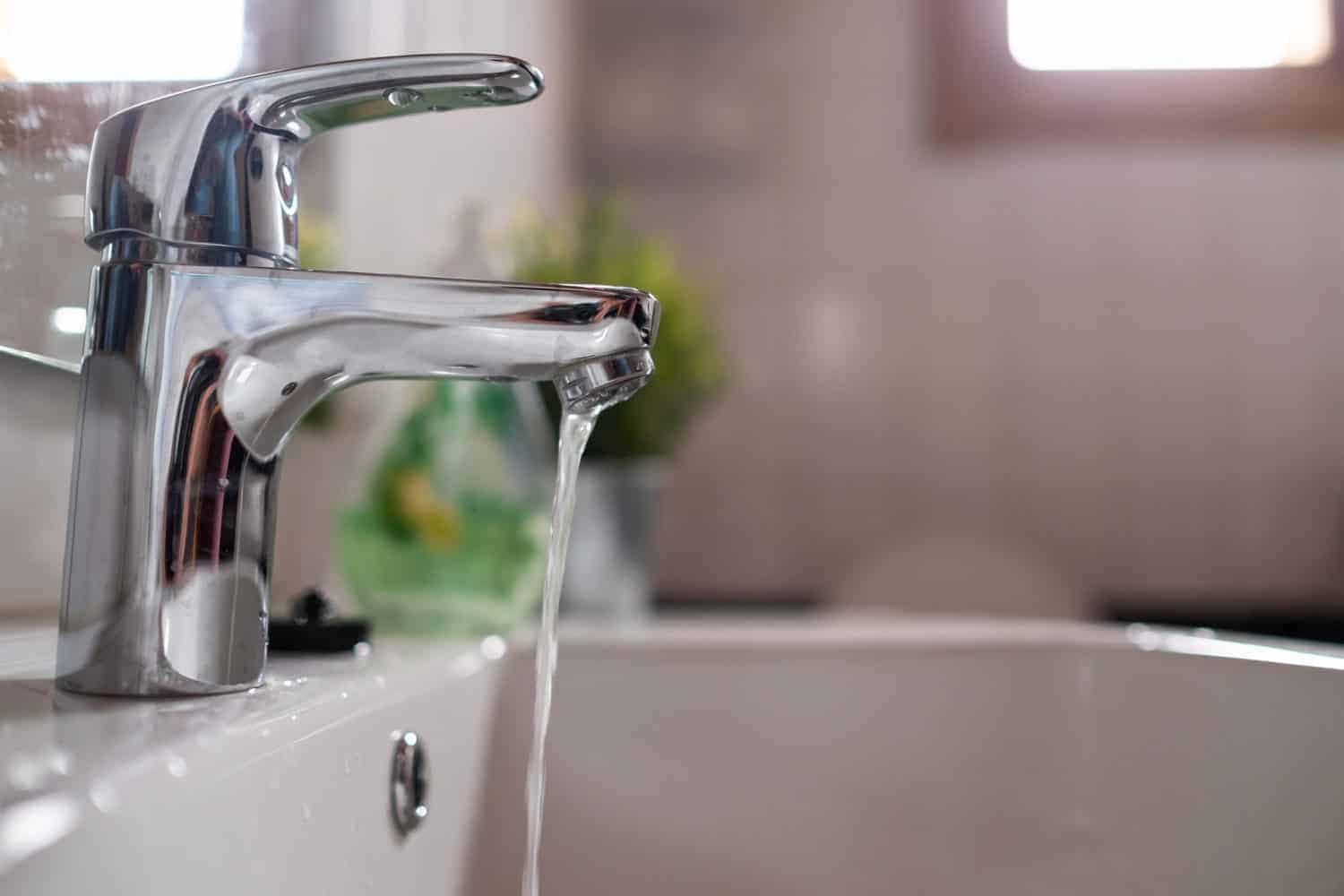What type of tankless water heater is the best option? Every buyer faces this question before hitting the market.
Nowadays, most people are shifting from conventional water heaters to tankless appliances. As the popularity of tankless models continues to grow, everybody’s asking the big question: gas boilers or electric boilers?
To be honest, there’s not a single correct answer to this question. If one type works perfectly for a particular household, that doesn’t mean that it will work as well for the next one.
One needs to consider several factors before deciding which option to go for. In this article, we’ll list the most important ones and help you get the right tankless water heater for your home.
Contents
What are Tankless Water Heaters?

Imagine a suitcase-sized water heater giving you the same amount of hot water as the large one currently in your basement. Besides the smaller size, tankless water heaters are also cheaper to run, more efficient, and longer-lasting.
Unlike their older and larger cousins, tankless models produce water only when it’s needed. In other words, they heat up water when you switch on the dishwasher, start a cycle on your washing machine, or simply turn on the faucet.
Although they are not as common as storage tank water heaters, they are becoming increasingly popular. Water heating is the second-highest utility cost in most homes. Therefore, tankless models are bound to find a place in every home in the near future.
Why Should I Get One?
Swapping your storage-tank water heater for a tankless one is not an easy switch. In most cases, it requires a plumbing retrofit. What’s more, sometimes it even requires upgrading the gas line or the electric service to increase capacity.
However, if you’re interested in saving energy and space, a tankless model can be a worthwhile investment. This is particularly true if your old heater is close to the end of its useful life.
As their name implies, these appliances work on the “on-demand” principle. They heat water as it is passing through them. A tankless model rapidly brings the water up to temperature by using a heat exchanger.
Heating water only when it’s required removes the standby energy losses that come with storage tanks.
What are the Differences Between Gas and Electric Tankless Water Heaters?
To help you make an informed decision, we’ll compare these two types of tankless water heaters in several important categories:
Price
- A quality gas-powered model with bells and whistles can cost over $1,000. While the non-condensing units come at a lower price, installing them costs more. Condensing units are more expensive due to their sophisticated design.
- Electric-powered models, on the other hand, are significantly cheaper. You’ll be able to find a quality model for around $500.
Installation
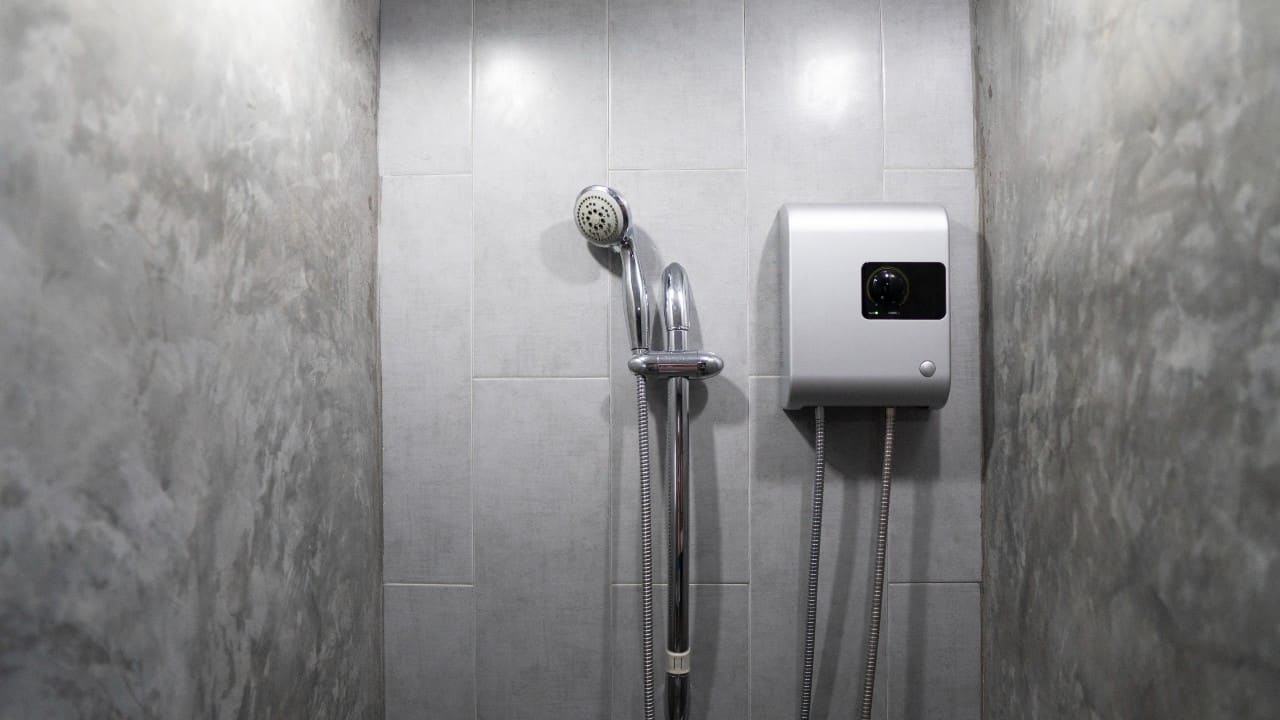
- The installation of gas tankless units is more complicated and costs more. This is particularly true for the non-condensing models. To accommodate their gas and venting requirements, costly home modifications are required.
- Electric-powered units are easier and less expensive to install. They are smaller and more flexible when it comes to installation. In other words, they can be installed in out-of-the-way places, such as closets.
Operating Costs
- These days, gas prices are lower than electricity prices in most areas. However, in some areas, the opposite is true. Furthermore, gas prices fluctuate far more than electricity prices.
It should also be mentioned that gas prices are expected to go up in time. Electricity prices, on the other hand, are relatively stable. They’re unlikely to increase significantly.
- Besides the fuel cost, another factor that influences the operating cost is efficiency. Gas-powered models achieve an efficiency of 80-85%. And, as we mentioned, their fuel is cheaper. This may not be the case in your area, however.
Electric-powered models achieve an efficiency of 99%. This efficiency can easily offset the higher electricity costs.
Hot Water Needs
- Gas-powered models can deliver more hot water than their electric counterparts. This makes them a great choice for households with large families.
- Electric tankless water heaters can deliver around 8 GPM (gallons per minute) of hot water. They don’t perform as well as gas-powered units.
Maintenance
- As expected, gas-powered models require more maintenance. This is because they are susceptible to mineral scale build-up. Not only do they require regular flushing, but also need to be inspected annually by licensed technicians.
- On the other hand, electric tankless water heaters don’t require as much maintenance. However, annual flushing and filter cleaning is recommended.
- If your water heater is in the basement, don’t forget to check on it every now and then. And if you find water leaking near your water heater, check my post on dealing with water in the basement.
Service Life and Warranty
- Designed to last at least 20 years, gas-powered models are very durable. However, their sophisticated design makes them more difficult to service.
Although warranties vary from one model to another, a 10-year warranty is common. Expect a short service life if you don’t regularly maintain your model.
- Due to their simple design, electric-powered units typically exceed a 20-year lifespan. In case of issues, they are much easier to troubleshoot and repair. However, their warranties rarely cover a period of more than 5 years.
Environmental Impact
- Gas-fueled tankless units are more energy-efficient than conventional water heaters. However, they emit greenhouse gases into the atmosphere.
- As they don’t burn fossil fuels, electric-powered models are not dangerous for the environment. They are also very energy-efficient, reaching an efficiency score of 99%.
Homeowners Preference
- Gas-operated models are the best option for people who’d like to improve the efficiency of their conventional water heaters. Models with larger GPM are particularly suitable for households with high hot water needs.
- Many homeowners feel more comfortable with electric-powered units when it comes to safety. They see using propane and gas inside the house as a recipe for disaster. Also, many prefer electric tankless units as they’re environmentally friendly.
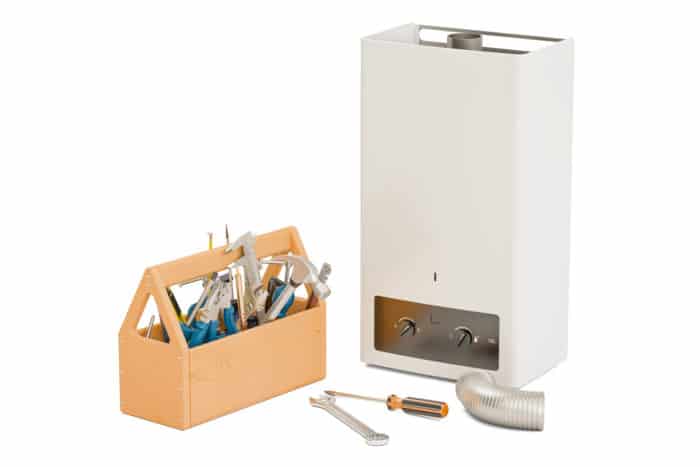
If you are also want to know what are the differences between water heaters and furnaces, read my Furnace vs Water Heater comparison.
Factors that Impact Service Life
If you’re in the market for a tankless water heater, keep in mind that there are several factors that can impact its life:
Maintenance
As we said, performing yearly maintenance is vital for prolonging service life. This is particularly true for the gas-operated models.
These water heaters require regular flushing. The reason behind this is in the build-up of hard minerals. If they’re not removed, your system’s life expectancy and efficiency will drop considerably.
Installation
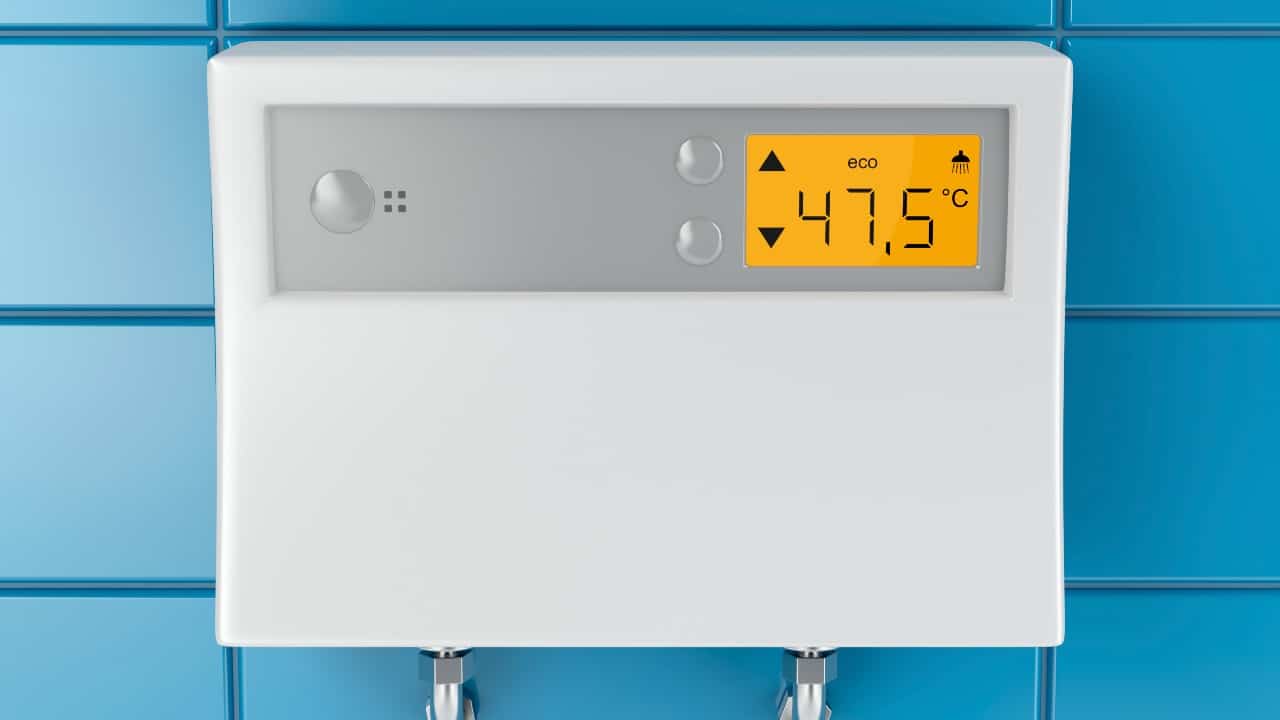
To get the most out of your unit, you’ll need to have it adequately installed. For this, you’ll need the help of a qualified professional. He can ensure that the electric or gas requirements match the needs of your model.
Hard Water
As we said, a build-up of hard minerals can decrease the life expectancy and efficiency of gas-powered models. This is caused by using hard water. To take care of this issue, perform frequent flushings, or install a water softener.
Acidic Water
Finally, water that’s too acidic can break down the plumbing and the heat exchanger of your model. It can be dangerous to all of your home’s plumbing, as well as to your own health. That’s why this issue needs to be addressed prior to the installation of the water heater.
—————————————————————————————————————————
As we already said, the gas versus electric debate can’t have a clear winner. You’ll have to draw your own conclusion and select the type that suits your needs.
Electric tankless water heaters require minimal maintenance, they’re easier to install and also come at a lower price. However, if your household has high hot water needs, a gas-powered unit would probably be a better choice.
